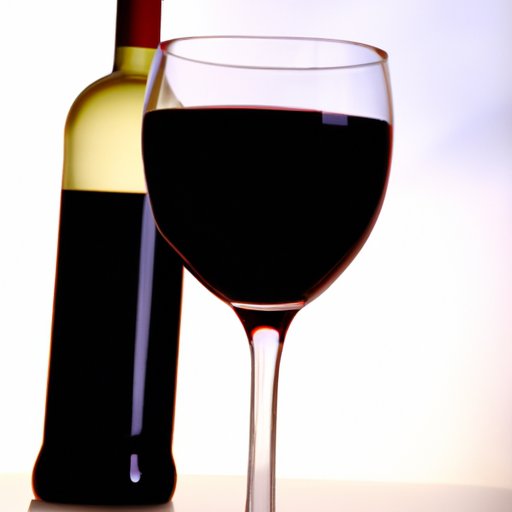
Introduction
It’s a question many people have asked before: does wine get you drunk?
While the answer may seem simple enough, there’s actually a lot more to it than you might think. In this article, we’re going to explore the science, culture, health impacts, myths, and society surrounding wine consumption to give you a more complete understanding of what happens when you drink wine.
A Scientific Perspective
Before we dive into the cultural and societal aspects of wine consumption, let’s take a look at the science behind it.
Wine is made up of a combination of ethanol, water, and various other components, including sugars, tannins, and acids. When you drink wine, the ethanol is rapidly absorbed into your bloodstream and distributed throughout your body.
Once it reaches your brain, the ethanol interacts with receptors that inhibit certain functions, leading to the classic effects of drunkenness. The more ethanol that reaches the brain, the more pronounced the effects will be.
Of course, not all wines are created equal when it comes to their ethanol content. Factors like alcohol percentage, serving size, and the speed at which you drink all play a role in determining how much it takes to get drunk.
The Cultural Significance
While the science of wine is fascinating in its own right, it’s impossible to truly appreciate the drink without understanding its cultural significance.
Throughout history, wine has held a special place in the hearts of many civilizations. From the ancient Greeks and Romans to the modern-day French and Italians, wine has been associated with everything from religious ceremonies to social gatherings to everyday meals.
The rituals surrounding wine consumption vary from culture to culture. In some places, it’s considered rude to refuse a glass. In others, there are strict rules about which wines should be paired with which foods.
More recently, wine has evolved to become a symbol of sophistication and status. It’s not uncommon to see bottles of wine that cost hundreds or even thousands of dollars on display in high-end restaurants and wine shops.
Health Impacts
Like any alcoholic beverage, wine can have both positive and negative impacts on your health.
On the plus side, studies have shown that drinking wine in moderation can help reduce your risk of heart disease. Red wine in particular has been shown to have beneficial effects on the heart, likely due to the presence of antioxidants called polyphenols.
However, excessive alcohol consumption can also pose serious risks to your health. Long-term heavy drinking can lead to liver damage, increased risk of cancer, and a host of other issues.
Exploring Myths
As with any popular drink, there are plenty of myths and misconceptions surrounding wine. Let’s take a look at some of the most common.
First, there’s the idea that red wine is healthier than white wine. While it’s true that red wine contains more polyphenols than white wine, the difference is small enough that it’s unlikely to make a significant impact on your health.
Another common myth is that drinking on an empty stomach will get you drunk faster. In reality, this isn’t the case; the amount of food in your stomach has more to do with how long the effects of alcohol last, rather than how quickly they kick in.
Finally, there’s the idea that drinking water will help you sober up. While staying hydrated is always a good idea, it won’t make any difference in how quickly your body metabolizes alcohol.
Culture and Society
Wine is more than just a drink—it’s a huge industry that touches on everything from agriculture to tourism to marketing.
Wineries and vineyards around the world play a vital role in their local economies, offering employment and drawing thousands of tourists every year. At the same time, however, the wine industry can be incredibly resource-intensive and can have negative impacts on the environment if not managed sustainably.
Despite these challenges, the world of wine continues to fascinate and inspire people around the world. From the most basic table wines to the rarest vintages, there’s something for everyone to appreciate in this complex and fascinating drink.
Conclusion
So, back to our original question: does wine get you drunk?
The answer is, of course, yes—it can. However, like anything else, the effects of wine consumption depend on a variety of factors. By understanding the science, culture, health impacts, and myths surrounding wine, you can make informed choices about how and when to consume this timeless beverage.
As always, it’s important to drink responsibly and in moderation. With that in mind, we encourage you to continue exploring the wonderful world of wine and all it has to offer.





